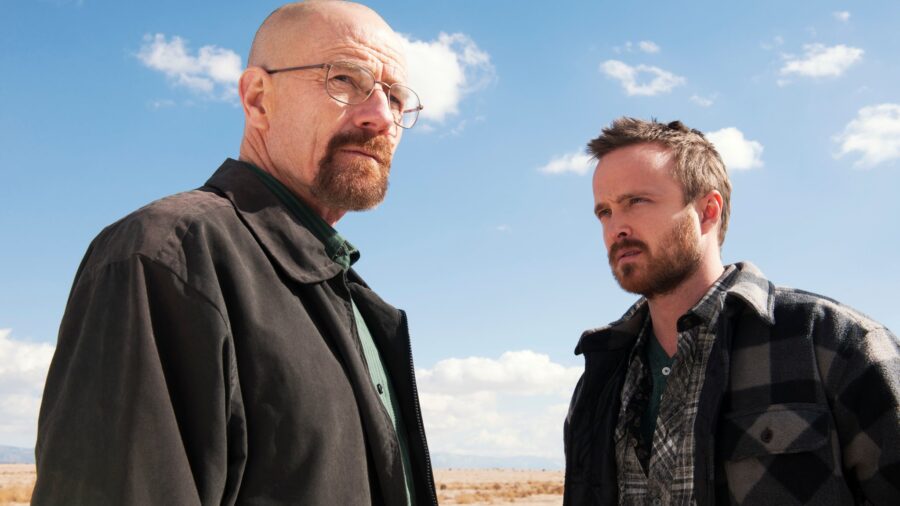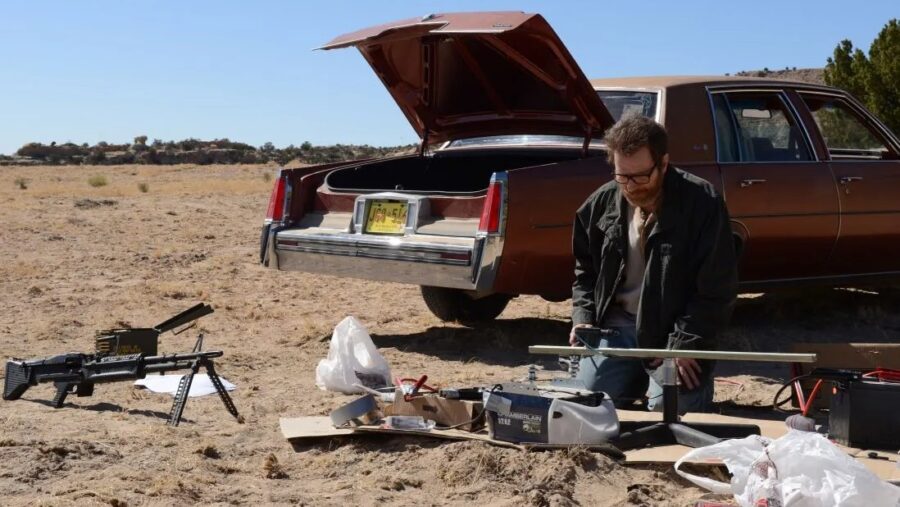Breaking Bad Original Ending Was Even More Shocking

In the wide world of prestige television, few finales achieved as significant an impact as Breaking Bad’s climactic showdown, during which, we all remember, Walter White mows down a bunch of Nazis with an M60 machine gun. But what if the ending we’ve come to cherish was almost entirely different? In an enlightening conversation with Slash Film, series creator Vince Gilligan unveiled a shocking revelation: the original conclusion envisioned everybody’s favorite meth dealer unleashing a hail of bullets not on neo-Nazis but on police officers.
How time flies: it’s been ten years since Breaking Bad, the television show many consider the best of all time, showcased its breathtaking finale. This final chapter, titled “Felina,” included the culmination of Walter White’s journey from a simple, law-abiding chemistry teacher to the meth lord of Albuquerque. As many will recall, the last episode had him confront and take down Uncle Jack and his neo-Nazi gang, thus freeing his former partner, Jesse.
Vince Gilligan’s original vision for Breaking Bad had Walter White shooting lead into police officers.
If only for its narrative payoff, this scene evolved into an emblem of the series. And a decade after the series ended, it could grow even more emblematic due to the behind-the-scenes story we’ll now associate with it.
Indeed, Breaking Bad’s finale’s high-octane climax, centered around an M60 machine gun (Chekov’s gun on steroids, if you will), was never fated to unfold precisely as it did. Other narrative options competed for the ultimate honor of concluding the series. In the above-mentioned interview, the creative brain behind the show, Vince Gilligan, laid bare the challenges he and his writing team faced while trying to incorporate that menacing weapon.
Gilligan remembered the unadulterated frustration he endured striving to find a satisfactory use for the machine gun (which White purchases in the first episode of the final season). At times, the show’s creator divulged, he literally banged his head against a wall, near-hysterical with frustration. In his eyes, Breaking Bad needed to end as well as it began, and we can relate to the pressure he must have faced.
Vince Gilligan struggled to end Breaking Bad, but we can all agree the ending we did get was one of the best in television history.
The writer confessed that, far from a sick act of physical comedy, smacking his skull against an actual wall was an attempt to genuinely shake a good ending from his brain. Brought to the brink of abandoning the storyline, Gilligan’s team thankfully reminded him of their responsibility toward their loyal, enormous audience. Nonetheless, it was a classical Chekhov’s Gun situation (Chekhov’s Gun being the maxim that a gun introduced in the first act must go off in the third).

Thus, the first idea of implementing the M60: Walt wielding it to liberate Jesse from prison. The only problem? Said liberation would involve killing countless police officers, a step too far even for Breaking Bad. Walter might have been flawed, but massacring law enforcement, Gilligan and fellow writers felt, was a little much.
The solution? Nazis.
Said liberation would involve killing countless police officers, a step too far even for Breaking Bad
Hence, introducing Todd and Uncle Jack’s gang in the fifth season also provided an ideal antagonistic force. With their undeniable cruelty, Walt’s decision to target the Nazis struck viewers as both just and narratively sound. The climactic scene, when Walt employs his storied ingenuity to rig the M60 in his car’s trunk, still provides an abundance of cathartic satisfaction.
For fans worldwide, it also offered an ending they could all get behind in a series they would never forget.












